

Giving Cabo Verde’s young entrepreneurs a head start
09 November 2017 UNIDO
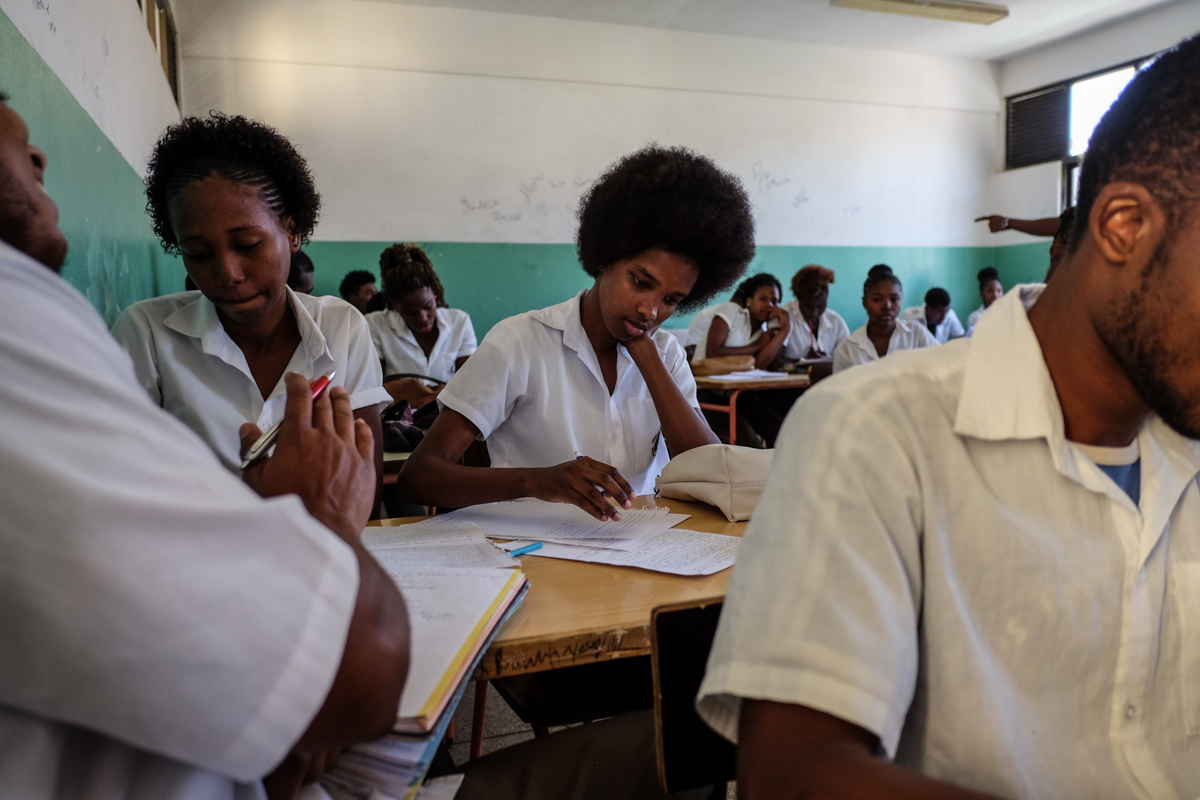
“Being an entrepreneur is a big task. If you want to start a business, it's essential to learn the necessary skills that underpin these qualities”, says Rui Jorge, a 21-year-old graduate from the Suzete Delgado secondary school, where, alongside other traditional disciplines, entrepreneurship is included as an integral part of the curriculum.
Jorge is one of 3,500 beneficiaries of the Entrepreneurship Curriculum Programme developed in Cabo Verde by UNIDO. It gives pupils the skills, knowledge and attitudes necessary to start and run a business. The programme began in 2013 and is now implemented in 42 schools across the archipelago of ten islands off the west coast of Africa.
Straight after graduating from the school, Jorge followed his entrepreneurial dream and together with his brother, who had learnt to produce essential oils and extracts for perfumes, developed a start-up venture specialized in hand-made botanical skincare products and perfumes. Today, they already have an important local supermarket selling their products.

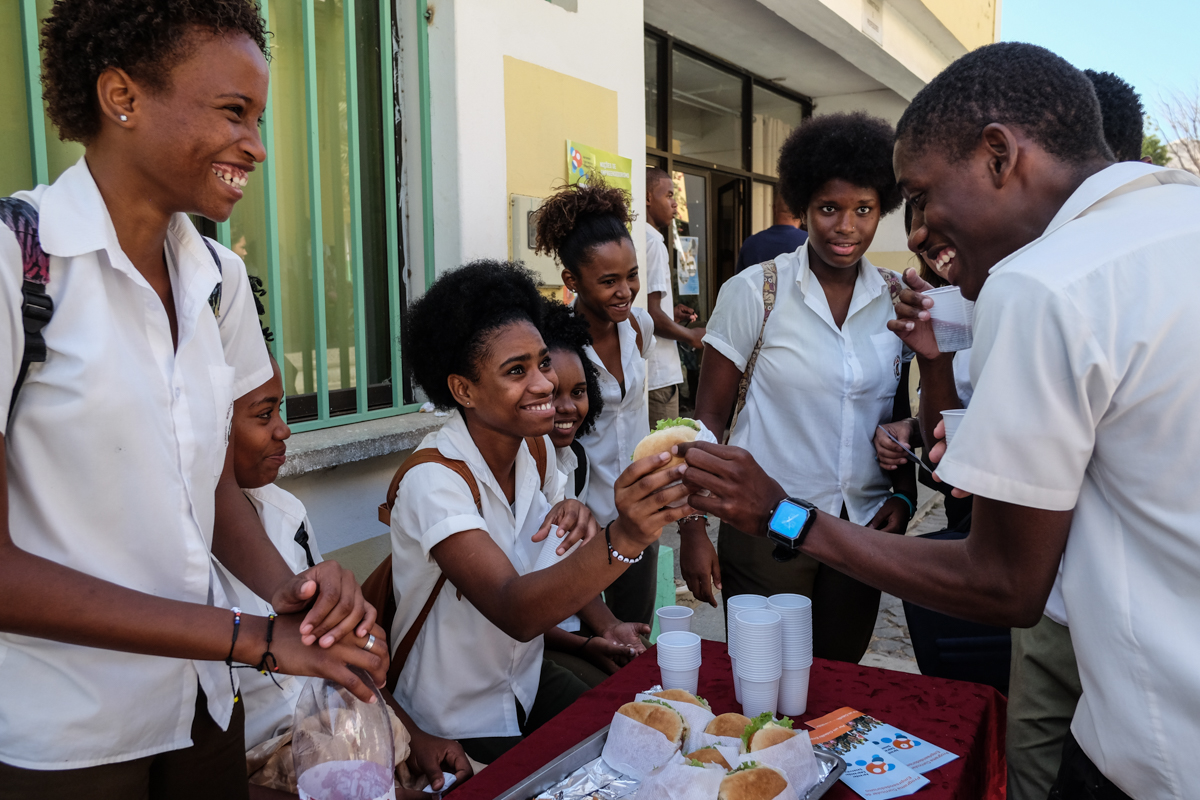
The Entrepreneurship Curriculum Programme combines theory and practice, emphasizing a hands-on approach to learning activities such as marketing a product in a school community; learning from local entrepreneurs through school visits; and preparing business venture plans.
Mario Fernandes, the head teacher of Conde Jacinto, one of the schools taking part, said, “After we introduced this programme, we noticed that the pupils’ attitudes changed. They began to be more pro-active in the classroom and they became more ambitious. Even in their personal lives they began to be more organized and they began to see opportunities in areas they previously thought were difficult to deal with. They realized that, with the right attitudes, these things could actually become easier.”
The programme is backed by a range of sponsors from the public and private sectors, and is tailored to the national context. Topics include entrepreneurship in the context of the country, business ethics and innovation.
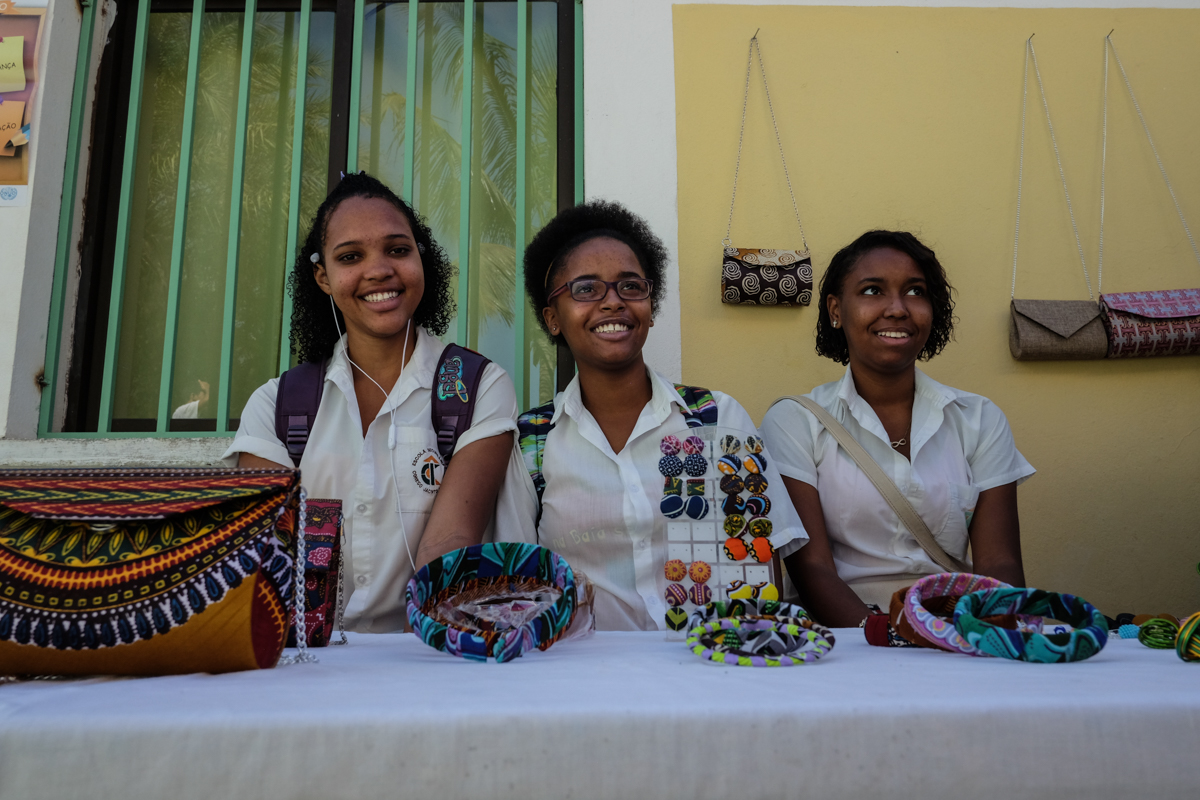
Denise Santos, CEO of the Bank Caixa Economica, one of Cabo Verde’s leading banks and one of the programme backers, praises the partnership concluded in order to boost entrepreneurship and develop the country’s private sector. “Our bank, through this partnership, has been supporting the teaching and learning, and facilitating graduates’ access to financial services”.
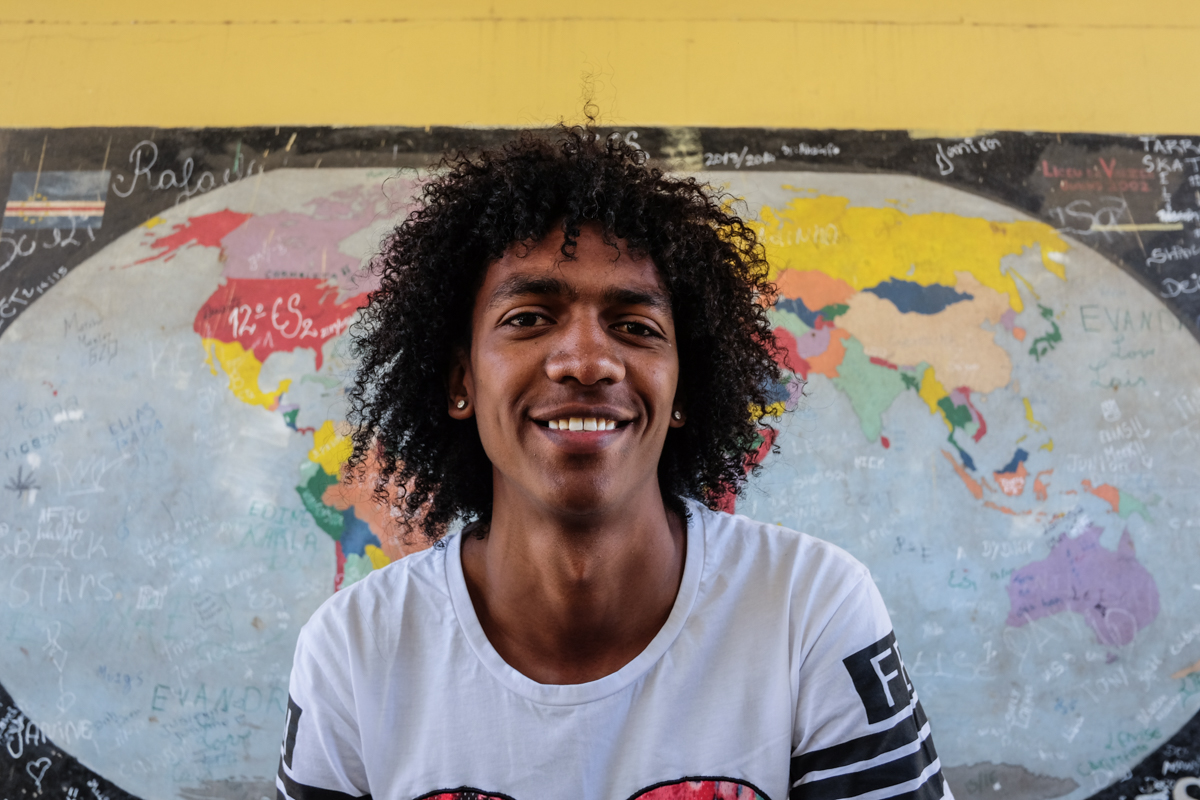
Another programme graduate, Paulo Jorge Gomes, launched a business of buying and selling fish between the islands of Cabo Verde. He says the ECP gave him “new competencies and skills, such as learning to reflect before doing anything, planning, setting goals and priorities”.
Since he started his project, he says persistence has been his watchword.
“The entrepreneurship programme helped me develop this business idea, and because of it, I managed to get financing from the Ministry of Youth to found my first venture. This made me feel like a young person who is preparing for a better future.”


Anabela Dinis, a professor at the University of Beira Interior in Portugal, carried out an independent impact study based on the feedback from students, parents, and teachers from 12 of the schools implementing the programme.
Her assessment is that students who attended the Entrepreneurship Curriculum Programme have “improved their entrepreneurial skills and intentions compared with those who did not attend the course. Parents have noted positive changes in their children's attitudes, not only in terms of their future perspectives, but also in their communication abilities, and in their capacity to take ownership of their lives and careers. Teachers unanimously note that the programme encourages teamwork, helps students elaborate business plans, and sparks new talents and entrepreneurial skills. “
UNIDO’s Entrepreneurship Curriculum Programme (ECP) is helping build an entrepreneurial ecosystem in a total of 12 countries, so far.
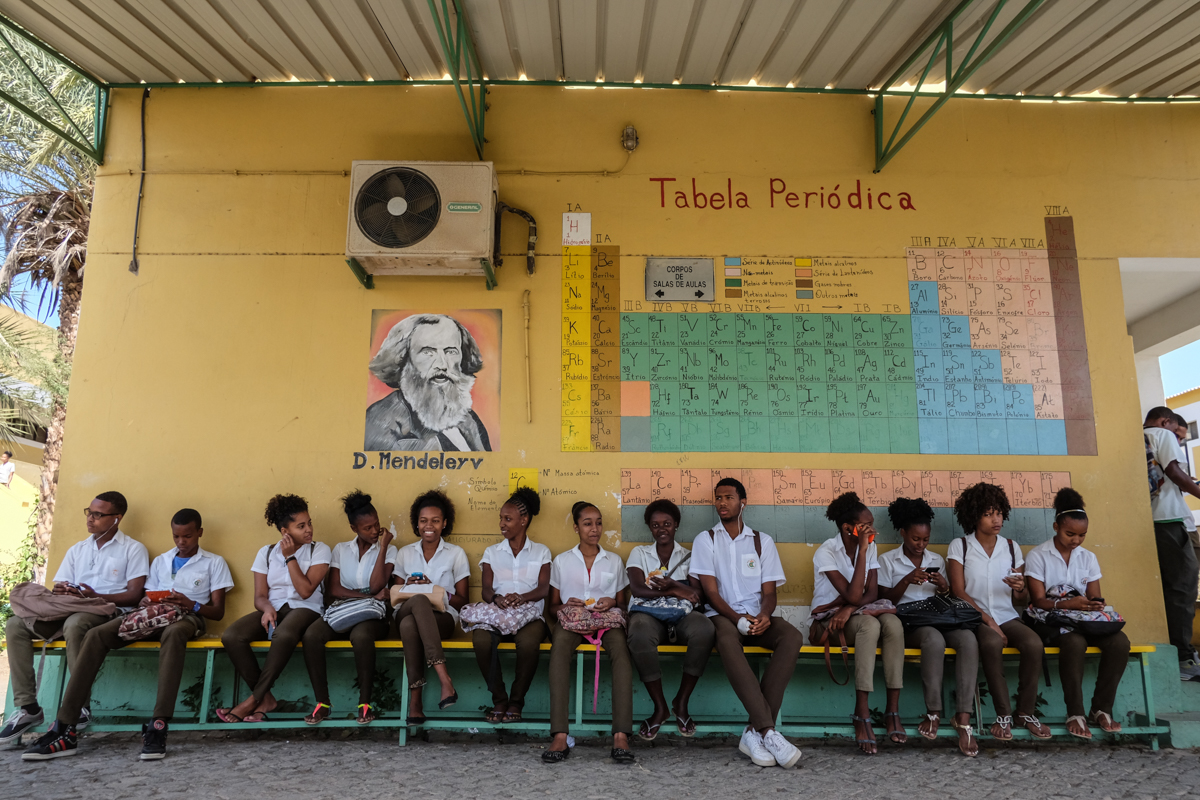
Text by Paulo Sales
Edited by Daniel Chang